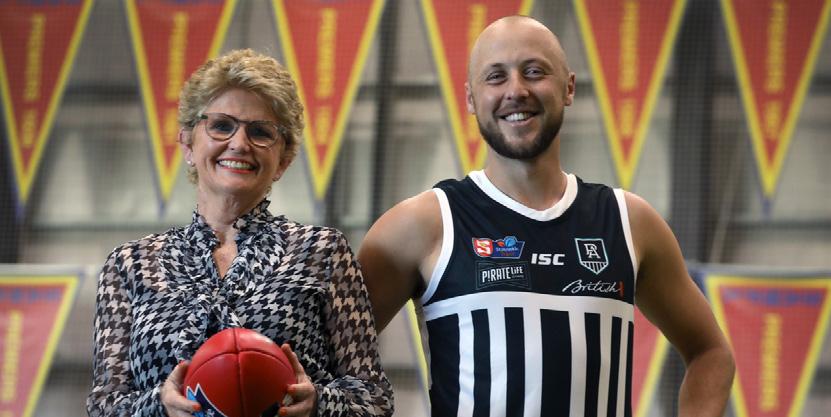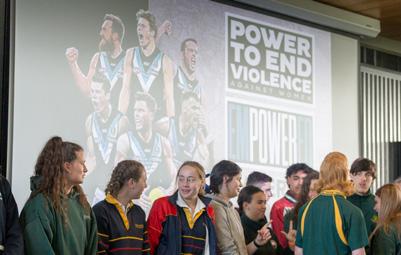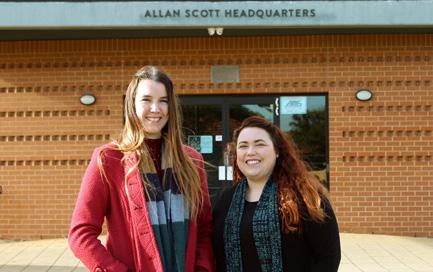
3 minute read
Power to End Violence Against Women program marks milestones
The Power to End Violence Against Women (PTEVAW) program celebrated significant milestones this year with its 100th school visit and the launch of girl's spin-off, Empowered.
PTEVAW reached the landmark visit at Henley High School in the same week as Empowered began in classrooms to enhance female Year 10 students' understanding of gender equity and women's rights.
Empowered has since engaged 325 students at five schools, while 8,180 15-year-old boys across the state have participated in PTEVAW, which began in 2016.
Through the primary prevention program, students learn how to recognise and safely stand up to gendered drivers of abuse.
It's a cause close to Program Coordinator Cameron Sutcliffe who has seen the impact of domestic and family violence on a few good mates.
"Thankfully they were able to get through it with the supports around them, so programs like this are hugely important" said Sutcliffe, who captains Port Adelaide Football Club in the SANFL.
PTEVAW is a joint partnership between Power Community Ltd (PCL), Centacare and the Department for Education. Empowered was made possible by an Adelaide Airport Limited grant.
"The club is very proud to have delivered the Power to End Violence Against Women program to 100 schools over the past five years," said Jake Battifuoco, Managing Director, PCL.
Centacare Director Pauline Connelly has high hopes for both programs "given how important continuity and capacity building over the long-term is for primary prevention."
"A critical factor in the prevention of domestic violence, and of providing opportunities for a growth in the notion of respectful relationships, is self-awareness," she said.
"This does not just rest with the male, although this is a crucial factor.
"The importance of awareness that young women have of what constitutes a healthy relationship, and of how they themselves are experiencing the relationship they are in, cannot be underestimated."


LEADING BY EXAMPLE: Caitlyn Woodcock and Alex Barr
Alex and Caitlyn on a mission
It took just one conversation to put domestic violence on Alex Barr's radar.
The Mental Health Peer Worker was in Year 10 when a group came to visit her school to talk about abusive relationships.
It was a watershed moment for the then 15-year-old who knew little about violence against women.
"That was the first time I ever heard that there was a cycle of behaviour to domestic violence, and that there were warning signs you could look for," Alex says.
"No one had ever had that conversation with me before, and it really stuck. It was always in the back of my mind growing up after that and every relationship I got into."
Now 31, Alex hopes to exert the same positive influence on female students she meets as co-facilitator of EMPOWERED.
A joint program between Centacare and Port Adelaide Football Club, Empowered visits secondary schools to enhance students' understanding of what healthy relationships look like, and how to identify red flags that can lead to abusive behaviours.
"For 15-year-old me who can't remember anything else I did that year, to take a similar message and embed it into how I live my life obviously was very powerful, and I think that's why I see this program as being so important," Alex says.
Key messages include early warning signs and cycles of abuse; how gender-based stereotypes normalise unhealthy behaviours; and the charter of women's rights.
"Teaching young people to recognise red flag behaviours is also pivotal because it helps them to set boundaries around what they will and will not accept in a relationship," said Caitlyn Woodcock, co-facilitator of Empowered and Mental Health Worker.
"I'd like young people to recognise they don't need a partner to be worthy or 'whole', as low self-esteem or self-worth can lead to relationships that are neither healthy nor respectful."










